Issue Number 17, Summer 2012
Contents
- Induction by Carol Alexander
- Letters from the Hinterland #1, Pond Food by Raymond Greiner
- American River by Molly Fisk
- In Wyoming
Grand Teton National Park by Laura Sobbott Ross - Seaside Heights by John Smith
- Full Moon Walk by Barbara Swift Brauer
- Clear Cutting by Ken Pobo
- Bonding with Hondo by Amanda Sandos
- Late August by Barbara Crooker
- Splayfoot by Will Cordeiro
- Sure it is Becoming, But by K.R. Copeland
- Cougar Ridge by Susan Rich
- Menagerie by Jessica Karbowiak
- Clear Cut by Polly Brody
- The Ephemeral Pond by Bill Edmondson
- Filling In by J. Rodney Karr
- At Pond's Edge by Judie Rae
- The Double Darkness of Chance and Instinct by Maya Khosla
- Liquid Fractures: Karst, Gushers, and Absence by Corinne Lee
- Goodbye to Paper by Kirsten Casey
Archives: by Issue | by Author Name
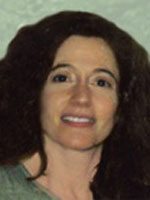
Induction
by Carol Alexander
Carol lives in the urban reaches of the Croton Watershed.

They told the child of the sea--
liquid poem of it, pocket stone
pawn for rail and racketing train--
journeys of the fingerling spawned
and enshelled hermit crab
pincering mussels pried from rock.
Noisome leavings of the wrack
shimmered in farflung disarray,
gull and tern and pitchy wave
attuned to the tension of the sky
bearing down to midwife night.
Then the sea, the sea itself
undulating to its own low fugue
stole away the panting breath
of the child inducted into loss.
Taut-line hitch of shore held fast,
against the undertow of sea.
In the booming trains of swell
dying cries hung in the wind
wild inhuman wail of wind,
driven roil of mounting waves
biting the pimpled matchstick legs.
What of lost fish of the deep
rainbow lights, schools of spawn
latitudes of cold degree
grinning monsters ocean slain
in the child's fey poem of sea?
See the trope of icy moon
you child leaping in the spume
pitiless as cityscape and gray
as dead things of the ocean wrack
the graves of small ships cresting
and then roughly torn away.
© Carol Alexander
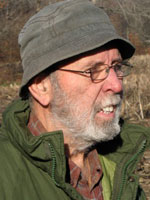
Letters from the Hinterland #1, Pond Food
by Raymond Greiner
Raymond lives with his canine companions Orion and Venus on 14 acres of remote forested and pasture land about three miles from the hamlet of Paragon, Indiana, in a cabin about 500 yards from the little-traveled road.

Walking down the aisles of Rural King, the local farm and feed store, I read the various labels on the multiple feed bags; sweet stuff for horses, scratch grain for chickens, meat bird, layer crumbles, chick starter and, at the very end of the aisle, a vividly white bag, off by itself on a small pallet, labeled pond food. It’s really fish food, but the label strikes a chord in me.
Farm ponds are sanctuaries for life. Often small, they provide water for livestock and a method of water storage for seasonal dry spells. Water can be pumped into tanks, also providing water for gardens. Rural land designed for self-sufficiency centers on its water source.
My pond has become much more to me than a farm function. It serves those purposes well, but it also represents a source of introspection, a window, a comfort zone and an observation platform. If you desire a special view of life, sit on the bank of a farm pond for a while. Be patient and let your eyes wander the water’s surface; things happen slowly. It’s quiet and peaceful here, and the occurrences are subtle. Small swirls appear, a bluegill or turtle surfacing. The wind driven aerator forms a circle of bubbles, the ducks move about dabbling for choice morsels, the water snake moves quickly across the pond with graceful speed and exits the opposite bank moving quickly into the shelter of tall grass. Frogs are abundant on the banks as they patiently eye their prey. As spring wanes cattails are forming, their tails reaching for the sky. Dragonflies are out, mesmerizing as they fly in pairs, turning in unison with absolute precision. How can they do that?
In late winter, the pond thaws. As I approach there is a small wake moving across the surface, and upon its exit from the water I can clearly see it is a mink, the first I’ve seen here. Such a beautiful creature, it glances my way, then disappears into the woods.
One summer day I observe a caterpillar as it ventures onto a stick that is partially in the water. As the caterpillar moves onto the stick, the stick floats away from the bank, cutting the caterpillar off from land access. The caterpillar then walks toward the end of the stick, which begins to tip into the water from the caterpillar’s weight. Then the caterpillar moves to the other end of the stick, and again the stick tips. Finally the caterpillar moves to the center of the stick, achieving balance, and remains in place. Eventually the stick floats back to the pond’s bank and the furry critter regains access to its land base. It seems a lesson that may be applied to human complexities. If one direction fails, try another; if that one fails also, go back to center and wait.
This micro ecosystem has been an important part of my daily life for many years, offering me visual and spiritual pleasures. I have an old steel chair that sits under the oak tree next to the pond, weather beaten from sitting out all winter. This chair predates the fancy canvas fold-up models and the aluminum webbed-seat ones. It has become an attachment to my daily life. (It also represents a low-priority project that has been haunting me for years, to sand and paint this relic.) As I rest there in the evening with my companions Orion and Venus, I feel blessed to have this connection with mind/earth, a rarity in today’s high-speed culture. Pondering that pond-food bag at Rural King, I feel a temptation to buy one, toss in the crumbles to stir things up a bit, but for now, I am not feeding the pond. The pond is feeding me.
© Raymond Greiner
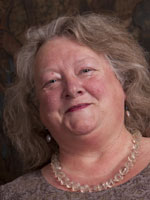
American River
by Molly Fisk
Molly lives in the south fork of the Yuba River's watershed, about 50 feet from Rush Creek, which does rush in winter but is dry in summer, helping her remember that seasons change, disappear, are reborn, and so are we.

I.
The sound of a thousand separate sounds made anew by
different water,
not the water we paddled through which is far downstream,
slapping the rocks of our afternoon.
The lower rapids gurgle high while the upper echo a
deeper tone —
nothing is singular, everything here is a multitude,
simultaneous: an explosion, percussive and sparkling,
song of a thousand remembered rivers,
rasp of a thousand shifted stones.
II.
Alder and willow, and up a little farther on the hill,
Digger pine’s lacy outline.
Always oaks and the dry brown grass of a western summer.
Two little tweetle-y birds in the bush
I wouldn’t know even if I held them in my hands.
The way birdsong sounds like metal scraping briefly against something hard.
Lapping backwater rocking the boat, and blackberries,
the eating of which brings us back to the fold of our brothers and sisters
the sweet-toothed bears.
Air quick against skin recently drenched with emerald river.
The white flowers of rapids to come
blossoming, blossoming.
III.
The merganser says not now
and hunkers closer to her rock
mid-river, her red neck and head
indivisible from granite,
her buff breast feathers unseen.
Three turtles on a log,
motionless, until the very last
minute. Not here, they grumble
and slide under green glass,
an oar parts their log’s reflection.
Not me, whispers the brown trout
switching his tail faster than sight
and ducking under a shelf into
the dim reaches.
And the alder leaves flicker
in a hot July breeze,
listen, listen.
© Molly Fisk
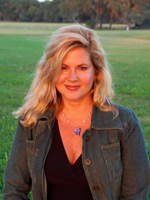
In Wyoming
Grand Teton National Park
by Laura Sobbott Ross
Laura lives in central Florida in the Upper St. John's Watershed.

We stand at the edge,
not unlike the ancient
biblical multitudes,
with their carts upturned,
their bundles of sage
and wildflowers.
Compelled by a longing
to be awed if even as briefly
as the hemline that brushed
the blind man’s fingertips.
His new eyes, our own,
enrapt and swallowing
every luminous nuance
of sky, mountain, sun.
© Laura Sobbott Ross
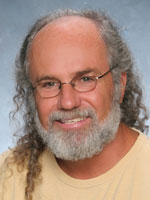
Seaside Heights
by John Smith
John lives on the New Jersey side of the Delaware River in the Lower Delaware watershed.

This is the ocean before memory,
and those are the pelicans my grandfather
told me used to pilot the waves
before I was born.
I swear that’s the same dolphin
that surfaces in my dreams,
and this is the sea glass my sister and I
gathered and polished like gems.
I understand what water means.
I have been thirsty all of my life.
Still, no matter how long it’s been,
I’ve never forgotten how to swim.
I’ve seen the sea blue, gray, and green,
sharp as a bed of shells
and stellar with jelly fish.
And I’ve suffered its undertow.
So I take the sand very seriously,
and this year the beach grass
stitched in rows across the young dunes
is a promising binding.
But I know the waves, like pages
in the book of all there is to know,
turn over themselves as they come
and into their own as they go.
"Seaside Heights" was published in an anthology: Under a Gull's Wing (as "Lavallette")
© John Smith
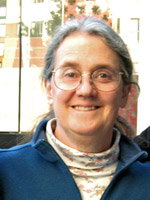
Full Moon Walk
by Barbara Swift Brauer
Barbara lives in the Lagunitas Creek watershed in the San Geronimo Valley, the last un-dammed headwater tributary of Lagunitas Creek. Her home is within earshot of ephemeral and year-round creeks, just down the road from the fish ladder where coho salmon can be seen along their annual journey upstream to their spawning grounds.

Even though you’ve climbed to the ridge
for its vantage overlooking the valley,
it is only you and the moon, nothing else:
a new territory of light and lightlessness
from which everything else recedes.
Taurus and Gemini blanched from the sky,
even Orion retires, dogs at heel.
Only you in the spotlight,
submerged in light, immersed as a swimmer.
The trail beneath your feet
indistinct as a streambed, ocean floor. You walk
in tentative steps, ready for shift.
Or, as if you moved in pure snow,
flapping your arms like an angel
to animate the shadows.
As if the rest of the world has melted away.
As if it could last forever
and no one waited below.
© Barbara Swift Brauer
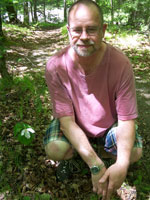
Clear Cutting
by Ken Pobo
Ken lives in the Lower Delaware River watershed in southeastern Pennsylvania.

A forest walk--we find
a stride, smell last winter
on dead leaves. Trees
block some sky but the sun,
on gold stilts, walks
in clearings. Driving home
we pass stumps,
busted branches. A forest
gutted. Ghosts of pines
and birches search for where
they left their roots.
© Ken Pobo
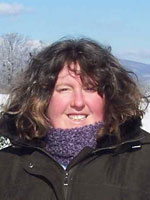
Bonding with Hondo
by Amanda Sandos
Amanda lives on a hundred-acre farm nestled between the Blue Ridge Mountains Peaks of Otter and the James River in the Blackwater Creek watershed.

Hondo was one of the largest chimps I had ever seen. A commanding male, he ruled his troupe at the North Carolina Zoo with a king’s presence. On more than one occasion, when Hondo was taking out his frustrations on his unruly family, I watched from a distance in absolute terror of his power and the expressions of anger and hostility on his face. I had to work very hard not to show him my fear, but somehow Hondo knew, and he seemed to relish finding new and interesting ways to scare me. He made loud noises, threw things, or spit on me. We shared a mutual dislike that I think was caused by a mutual misunderstanding of each other.
I made numerous mistakes with Hondo in the early days of our acquaintance. I avoided him and never gave him a proper and respectful greeting as troupe leader. I also had a difficult time masking my frustrations with him as our relationship deteriorated, and although I tried hard not to react, I had a hard time schooling my facial expressions. I made my dislike clear in a hundred small ways, like lifting my eyebrows or creasing my brow. Then along came Hondo’s offspring, Jonathan, and my relationship with Hondo changed drastically.
Jonathan chimp was born to a first-time mother, who was unable to nurse him. In the absence of another nursing female, the choice was made to hand-raise him. But because the regular chimp staff was short-handed, the non-primate keepers in the park, such as me, were asked to volunteer time to help feed him. Of course, I jumped at the chance to cuddle a baby chimp.
Jonathan was a tiny thing with enormous ears twice the size of a normal chimp. We fed and cared for Jonathan in the cage adjoining the troupe to help teach the females care skills by watching us. This minimal contact would also help integrate Jonathan back into the troupe when he was weaned. I was extremely nervous about entering the cage next door with only a large, metal grate separating me from Hondo and the others. So on the first day, I hesitantly walked in and sat in the plastic chair beside the mesh, waiting for the keepers to bring Jonathan and his bottle to me.
I remember distinctly being grateful that the chimp troupe was outside and none of them seemed to notice me. I had visions of the amount of spit and urine I would have to shower off myself before the afternoon was through. But, when they placed that tiny, furry chimp boy in my arms, none of that mattered. I was completely spellbound by his little, pink hands that grasped at my fingers just like a human infant, and his beautiful little face framed by those enormous ears. He gazed up at me with saucer-sized eyes and took the bottle for me right away. I felt a sense of peace fill me up, and I rocked him gently while he ate. I was bent forward over the baby crooning to him, encouraging him to keep eating, when I felt something on my neck, blowing my long hair.
A chill shot down my spine when I looked up to find Hondo seated with his side pressed up against the mesh cage door. I had to fight the urge to jump up and run. The only thing that kept me planted in my chair was worry that the precious baby would be frightened. When I looked back at the baby, Hondo blew gently at my hair again, and I realized he was blowing my hair out of the way to see the baby. I moved my hair back behind my shoulder and sat up straighter. I did this mostly so I could watch Hondo out of the corner of my eye.
Hondo remained quiet and my heart rate eventually slowed to normal. I opted to turn my chair and move it closer to the mesh bars. The look of surprise on Hondo’s face was something to behold. I don’t think the other keepers had offered to bring the baby closer to him, or perhaps he had not asked since he already trusted them. Regardless, my decision changed our entire relationship.
It became normal for Hondo to meet me whenever I was feeding the baby. We even sat with our shoulders touching against the mesh sometimes, once I learned to trust that he would not grab at my hair or pinch me through the bars. Hondo never again treated me with anything less than respect and affection. We eventually graduated to grooming each other through the bars, which indicated that he accepted me as a member of his troupe. I often brought him treats, and he sometimes brought me items too, things he found in his exhibit. Hondo gave me a rock one day. That piece of slate is one of the greatest gifts I have ever received, more precious to me than any gemstone.
In all the years since, I have never been forgotten by either Hondo or Jonathan. No matter how much I change, every time I visit the zoo both males come across their large exhibit to greet me with obvious joy. The zoo visitors often find it exciting that the chimps know me, particularly when Jonathan throws his arms out and gives me a mock hug and kiss against the glass like he used to do as a child. Every time this happens, I feel a tightening in my gut that we can never again hug, and I remember how he would let me rock him to sleep with his head on my shoulder. But the boy has grown to nearly Hondo’s size, so we must be separated by bars, glass, and fences now. I realize this is best for my safety as well as his, but it doesn’t stop the longing or the sadness.
© Amanda Sandos
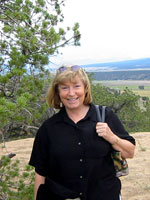
Late August
by Barbara Crooker
Barbara lives near the Little Jordan, a branch of the Jordan Creek, part of the Lehigh Watershed in rural northeastern Pennsylvania.

So already, everything’s starting to turn,
grackles crocheting their raggedy
scarves that trail for miles, snap beans
rusting and brown, tomatoes still pulsing
yellow stars in the hope that they’ll swell
round and red before frost shuts down
their production lines. Right now, we can still dry
them in the sun, pack them in oil, or slowly
roast them with garlic and thyme.
But nothing beats this sweetness in August,
hot and heavy with juice and seeds. Slice
them into rounds, shuffle with mozzarella,
add basil’s anise nip, drizzle with the kiss
of olio di oliva, a dark splash of balsamic,
the sprinkled grit of sea salt. The circles ring the plate,
diminishing O’s. We know the party’s almost over,
the sun’s packing up its bags. Listen to the crows
outside the cold window: gone gone gone.
© Barbara Crooker
Splayfoot
by Will Cordeiro
Will lives between Fall Creek and Cacadilla Creek next to many amazing waterfalls near Cayuga Lake in the Finger Lakes region, Seneca watershed. (The poem, however, is set in the Beech Forest among the Provinceland dunes at the Cape Cod National Seashore.)

We hike the bike trail out
to Pasture Pond, a splayfoot
toad next to the roadside,
its yellow eyes about
an inch above the muck.
The pine cones sway like chandeliers.
Stock still and never blinking,
it hunched, a glistening knuckle,
its tongue behind it tense,
about to punch quick vapor trails:
blue zips of dragonflies
zigzagging iridescence.
Sick skim of scum it soaks
in started running off.
From sunning, it now leaps—
cracks seeping slime; half croaks.
As, vanished into bubbles,
past circumspect of reeds,
a rainbow-slick it banishes,
skin breathing in the muddle.
© Will Cordeiro
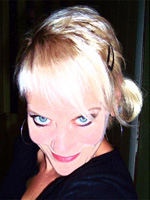
Sure it is Becoming, But
by K.R. Copeland
K.R. lives in the Chicago River watershed.

Summer’s middle sizzles
under sprinkler mist,
its thistled arms, char-crisped
past recognition.
The birds that perched now parched.
Leafy partitions
open to a steamy-beaked protest:
close the fucking curtains lest you burn
up all the worms!
A certain charm is lacking
in this atmosphere.
Everything awithering appears
like spears of crabgrass -- caterpillars
twisted in the wind.
A singe of garden,
deathbed wishes croaked.
A head rolls.
Clovers.
Overhead, a large, metallic marsh bug
helicopters,
searching for survivors
of this drought.
© K.R. Copeland
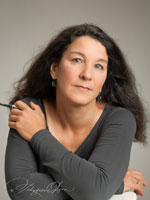
Cougar Ridge
by Susan Rich
Susan lives two blocks from Alki Beach, along the shores of the Puget Sound in the Duwamish-Green watershed.

The red squirrels sound their travel alarm,
bop their bodies, no dumber than small dogs.
Sometimes the world is all birdcall and breeze;
sometimes it’s one wild berry, a brindle moth.
Let August roam on another month
and if the universe complains, who cares?
Nothing to do but follow the trail, listen hard ~
as the madrones phone home, leaf up and disappear.
And what if we never went shopping again?
No luncheons or Monday nights at The Rose?
We’d gather, grow old, and I’d imagine, foolishly grin.
Like these kamikaze squirrels ~ count me in.
Port Townsend, WA
© Susan Rich
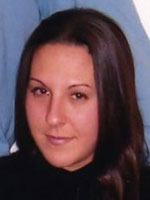
Menagerie
by Jessica Karbowiak
Jessica lives in the heart of the Southern Long Island watershed, just a few miles from the Fire Island National Seashore.

The year I turn twenty-four, I beat cancer, bear an intrusive chest surgery and finish college. I lift and push my body out of bed and tread flat-footed to the guest bedroom. I sit for many hours, bandaged and weary, in the darkness. I peer out window at the quiet Texas street, feel a tingling rise in my body and smother. I pull back the thick blue curtains and crawl outside. I’m not sure why I do this, why I don’t use the front door.
I walk barefoot down the block. I pause at the entryway to our neat suburban development, Katy Crossing, and wait. It is really no suburban den at all, merely a sliver of civilization affixed to an otherwise rural countryside. Yellowed grass and fencing go on for miles across the road, a farm rife with cows, pigs and horses. I’m a New York girl. These things are not the things I know. The smell of hay and pig shit envelops me, and I follow it, climb the dilapidated fence, walk just as calmly as you please into the grazing land.
This is someone else’s property. I’ve seen the old man, hunched and over-wrinkled, working his plow through the fields. On the way to school once, I sat in my truck at the corner, watched his deliberate efforts to cut a calf out of the barbed wire ring lining his property. His steady demeanor was being clouded by the calf’s bellow, chaotic and fearful, so I lit a cigarette with trembling hands as I turned left to drive to school.
This night, I walk. It is late, maybe one in the morning, but there is movement in the far corner of the pasture. My feet hit bristle and coarse growth as I move toward the shadow of what looks to be a large animal. He pauses as I move close, head lifted to sound, and I continue on, slower than before. When I get near enough to realize it is only a donkey, I laugh to myself. I suppose in my poetic imagining, I expected a stallion, a mare with doe-brown eyes, but only he is here. All paling gray and white undercoat, a crooked left ear hanging over a grotesque and large head. His eyes crossed and his lips outlined in a darker, dreary gray.
God, you’re ugly, I tell him though I am careful not to be over-loud.
My right hand pushes out into warm Texas air, covering the distance between us. He back-steps briefly and then stills.
I’m not going to hurt you, I say. If he is alarmed or irritated, he makes no sign. He just stands there, ever-still and waiting. What are you doing out here alone?
My hand alights on the coarse fur of his bulbous head. I rough-whisper you ugly thing, as my fingers touch and rub, and he makes an almost-sigh, begins blinking his eyelids more until he is heavy-lidded. I touch the rough of him as he bends his shoulders and front legs toward me, curves his head into the shape of my hand. I blink tears, resist the urge to curl up beside him, press my weary and damaged self into his whole body to rest in the grass until morning.
I lean down and kiss his ragged head, and I walk away. I don’t look back at him to see if he awakens, and I don’t visit him again. Sometimes I will see him as I drive past on my way into town, the doctor’s office, and let my eyes linger. He is the first living thing that stirs something within me after trauma. Something found instead of lost this time, and that night, I walk across the grass, back up my silent street and go home to think, think back to my Doctor Doolittle childhood. Furred and warming animal bodies, the play and romp of them, a tender connection forgotten and later the saving thing, the thing I remember to know.
***
A few months later, a bird alights on the spare tire hanging on the back of my truck. I am on my way to class and late, idling at the corner and waiting for traffic to ebb. I catch sight of him in my rearview, the bigness of him, blue-black shimmer and loud call. For some reason, a grackle—the nuisance bird of the south—decides to follow me to school.
I exhale smoke out the driver’s side window, turn my car onto Weir Road and make my way up to the light at the corner. Still, he perches, awkward-footed, small head and huge body.
What the hell do you want? I’m hitting the highway soon, buddy, so you better beat it.
I speak out the window-slit and he seems to hear me, head cocked crooked in my direction. The light turns green and I drive through the two small streets of town to the light before the I-35 entrance ramp. In spite of myself, I stay in the right lane and slow my pace. I peek in my mirror every few seconds to see if he’s flown off.
On 35, I do an even forty-five in the right lane with my hazards on. I’m irritated with myself for this; I’m definitely going to be late for class. Still, the grackle sits there on my spare tire at the rear of the car. I get as far as Pflugerville before I decide to take an exit ramp, school be damned.
A jackass in a yellow car cuts me off on the exit ramp, and I have to hit my brakes not to hit him. I curse out loud and give him a dirty look, and check on my bird. He’s moving as I sit in off-ramp traffic, lifting blue-black wings in large breadth to flutter. I’m in tears somehow by this point; I feel responsible for this damn grackle, the one that hogs my back tire and stubborns to move.
I open my window farther, call out, you must live near my house. I’ll take you home. This is too far.
He flutters wings down and I’m almost sure he understands. Though I know this is dumb, he’s just a damn bird, and my bird knowledge is limited—do they even have real homes and families?—still I don’t want him to go.
I take the u-turn and stay right-lane-friendly with hazards lit, get curious looks from the passersby in other lanes.
You’re ridiculous, I tell him out the window and into the wind. This would only happen to me, I call out and laugh, shake my head, but secretly I am grateful for the company, this boisterous and ballsy bird choosing my car for travel. When I get to the edge of Weir Road, he lifts wings and takes flight. I sit at the corner for a minute idling and watch him move, feel somehow more responsible than if I had made it to class and on time.
***
February brings a call from a friend. There is a neglected and beaten hound dog that needs a home. I’m not thrilled at the prospect. I already have a cat and dog, teaching and classes, grading and writing.
Just come see him, maybe, and then decide, is the hook the friend uses.
I’m not sure, I say. Really, it’s not a good time.
Just come see and maybe you can foster only, until we find him a good home.
Let me think about it.
Mid-February, I relent. I drive to meet my friend, see her standing outside the huge pet store in Round Rock, leashed to a small and lopsided-looking dog. I hug my friend as the barrel-chested dog noses me. He’s another hound dog, a basset, all ears and belly. Like a sucker, I take him from her, walk into the store and buy a few things I may need.
By mid-March he owns the house. His guttural, deep-bellied howl coming from the yard makes me laugh. The way he bounds his body on the grass, ears flying outward, tongue flailing. I call my friend later that night to tell her he can stay.
I told you you’d love him.
Shut up. He’s ridiculous.
He needs you.
Whatever.
You may need him, too.
Not bloody likely, I say.
It’s been a month and still he concaves his belly at my approach, a sure-sign of abuse. He inches away as I approach, inches closer as I recede. He is weary of the human in me.
Being sick is easy to fall back into, I tell him. If you’re not careful.
He stares at me, open-eyed and leery.
I want to tell him how I am crafted new and whole out of bones and memory, how that day does come, however slowly. I don’t know how to say this and I weep, quietly so as not to wake the house while the lopsided dog stares without blinking.
It is two weeks of inching closer, talking and weeping low-flung sounds in his direction before I courage and lift cautious hand up to his exposed left side. I nestle my head into belly-fur, whisper at him, it’s okay, you’re safe here, I’m your saving thing, buddy, get used to it, and you’re mine, that’s all there is to it, all the while sobbing my own need at him, saying you’re crazy, over and over to myself, he’s just a dog, not a person.
***
I learn the year I’m twenty-four to let the tender pulse through my veins, crack the torn-away things. I feel skin bristle; fill with fur which courses through this broken body to heal.
I dump my boyfriend and finish school, come home that last day to lie on the couch and still my body. My cat and two dogs line their bodies against mine, a warming. I sob sadness out and pray:
Make me bone and fur, heat and warming. Remove the human in me, the cold clot of memory. Let it sink down and out my shoes, fall to the floor. Replace it with a saving pelt in which I can carry myself. Let the small saving things enter, things I forgot, oh how did I forget, to carry them with me all this time?
© Jessica Karbowiak
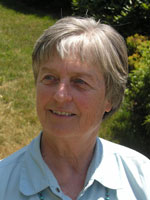
Clear Cut
by Polly Brody
Polly lives in an exurban Connecticut town, about 500 ft. above sea level, about an hour's drive inland from Long Island Sound. Every year she listens from her window for the first chiming peep of spring hylas that give voice to a pond, just within hearing.

Yellow "Cats" claw and rip
this tropic pelt.
Sap-wet shards fly from the chain’s bite,
teeth grinding toward heartwood.
Falling, each tree drags through
lianas linking it to others
in verdant tapestry,
opens a tear its length
to the cauterizing sun.
Under rain-season thunder,
bared earth will bleed red streams
pouring away, a silent scream.
Absentee landlords to the north
realize their Midas dreams
in lumber and dirt-cheap cattle—
quick-order hamburgers far from famine.
Lateritic soil hardens, scabs.
A bird, unheard, circles
crying for its canopy
and frogs, carmine-bright,
shrivel in the unrelenting light.
© Polly Brody
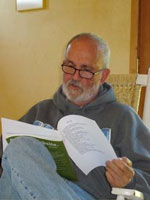
The Ephemeral Pond
by Bill Edmondson
Bill lives directly in the path of Canada geese who've long abandoned migration between Canada and South America in favor of a comfortable daily commute between Sebastapol and Santa Rosa, California.

Broad leaves of the sycamore
that kept the water cool
that floated down as food
and gave the larvae of caddis fly a home
are curling
Under this downpour of heat
eggs along the backs of leaves
dry into rows of code
tadpoles die in their spawn
and the clearing cloud of sperm
from the last orgy of salamanders
drifts sedate unattached
The pond dies from its margin
Mud begins to crack
Those that prey are caught
with the rest of the dead
© Bill Edmondson
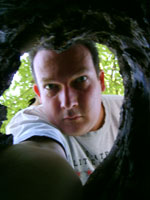
Filling In
by J. Rodney Karr
J. Rodney lives a ten-minute bike ride from Øresund, the sound that connects the Kattegat Sea with the Baltic Sea.

Dozens of desperate turtles crossed our yards
escaping suffocation from the bulldozer filling in
what my father called a sump hole and I called
a pond. All summer it was a dump for office waste.
I played with electrical wire a scientific madness.
I smeared tar all over my brand new jeans.
There were trees and thickets before that. One oak
was so large the trunk still stood, branches stripped.
I now sat in the crotch looking out over nothing
as far as I remember. I found a snapper’s shell
split open. Eggs. There was a mother inside
me hoping… for what? I took them home
and set them beneath the pine outside my window.
In the morning they were gone, nothing of what had been,
or of what had come, or of what I had ever hoped to tell.
© J. Rodney Karr
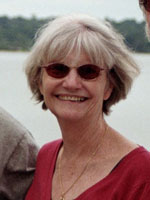
At Pond's Edge
by Judie Rae
Judie, a Canadian, lives in Nevada City, California, in the South Yuba Watershed, an area whose trees and waterways remind her of magical summers spent at her grandmother’s cottage on the Ottawa River.

From the heron we learn
patience---
each interminable,
cautious, silent
step.
The strike,
the miss
and the relentless
programmed
refrain.
Wading on spindly legs
through muddied waters
we feel our way---appendages
splayed,
ready to slug
life
down a waiting gullet.
Greedy.
Thankful.
© Judie Rae

The Double Darkness of Chance and Instinct
by Maya Khosla
Maya lives near Copeland Creek, which is a part of the Russian River watershed in Sonoma County.

No grass, no swale. The field burns like a fever
planed to a straight line. Scrapers, excavators,
bulldozers, done and gone. But when rain
pummels the barrens, knocking and knocking,
tiger salamanders deep under the earth
are ready to answer, as they have for eons.
Suction-cupped feet test, then climb through cracks.
Snouts turn from their subterranean world.
Of course the swale-becomes-pond is extinguished,
Clays have dissolved into inch-deep slop
too shallow for breeding. Days later, the four-limbed
slip back into the double darkness of chance
and instinct, leaving all their worth in puddles
doomed to dry. Yet here they are! Embryos
each in a ball of juice, differentiating into foot,
gill, will to live. Biogeography staying loyal.
They hatch into long-tailed larva chewing yolk
the color of sun. Swim the snipped lengths
of muddy silk, as much home to them, as much universe,
as the vast plates of water were to ancestors.
© Maya Khosla
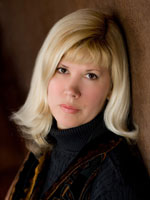
Liquid Fractures: Karst, Gushers, and Absence
by Corinne Lee
Corinne lives with her family on seven acres in the Texas Hill Country. Their land is bordered by hundreds of acres of wilderness preserve and undeveloped ranches. Just one month ago, storm runoff created a fifteen-foot deep river in the canyon at the bottom of their property. The entire river sank through karst and was underground within two days, flowing to destinations unknown.

I live in the Texas Hill Country, surrounded by holes. These karst fissures provide conduits, or portals, to subterranean aquifers and, eventually, aboveground springs. When it rains, water immediately is funneled deep into the earth, usually ending up miles from my home.
In the canyon next to my house, storms occasionally create a huge, raging river that disappears literally overnight, sinking into subterranean vaults of water. Below ground, the water follows mazes of fault lines––most created by a violent, 3 ½ minute earthquake that occurred 30 million years ago. That temblor created hills, steep cliffs, and an enormous fault line scar called the Balcones Escarpment. Just five miles from my house, the same fault wound can be viewed underground, at a cave appropriately called Wonder.
The karst on my land is home to nine endangered species: five spiders, three beetles, and one daddy long-legs. Water that sinks into the holes travels in hidden passages that can extend for blocks or even hundreds of miles. Occasionally, scientists drop dye through Hill Country karst and attempt to monitor where it exits. Sometimes the dye appears in a spring twenty feet away. Sometimes it appears in a spring fifty miles distant. Sometimes it vanishes forever.
Most of the water on my seven acres of karst ends up in the Edwards Aquifer or in San Marcos Springs, believed to be the oldest Native American settlement in all of North America. More than 200 springs jettison from limestone silt, creating habitat for eight additional endangered or threatened species.
This water historically has been pure, and its temperature remains miraculously stable year-round at precisely 71 degrees. Due to that remarkable consistency and clarity, a Spanish explorer named the resulting river Los Inocentes, but as the centuries passed, the name did not stick.
Perhaps that was just. The water in the river issuing from the springs is increasingly not pure. It contains caffeine, acetaminophen, BPA, DEET, flame retardants, sunscreen, birth control pill residue, fertilizer, and countless other pollutants. The majority of these pollutants are excreted by human beings. Most of the contaminants cannot be removed from the water by filtration or any other method; they are permanent poisons that are eternally wedded to fresh water. The Environmental Protection Agency has stated that 30 American states have highly contaminated groundwater and must remediate it, but there is no process for removing all but a handful of the pollutants.
This process of permanent freshwater water contamination is occurring worldwide. In Valencia, for example, cocaine, heroine, morphine, and ecstasy permeate the water; these drugs are in concentrations that are actually pharmacologically active. In short, by drinking water, we are consuming our increasingly drug-saturated culture and sharing one another’s pharmaceutical proclivities with neither awareness nor consent.
As freshwater descends through karst, it collects microscopic dissolved solids in rock, but it does not filter out drugs such as ecstasy. On a global basis, external geography is transforming into internal geography: our bodies are absorbing chemicals from water and are morphing in response. Young girls, for instance, are entering puberty at earlier and earlier ages. Ten percent of Caucasian American girls are developing breasts at age seven. The average American girl now begins puberty at age nine, three years younger than when I was a girl in the 1970s.
Other species are also being affected. Amphibians are vanishing all over the world. Frogs have malformed sex organs, missing eyes, and extra limbs. Scientists actually now have a difficult time finding wetlands that do not contain deformed frogs. Where I live, mussels downstream from local springs are in crisis: They are considered to be a “canary in a coal mine” species because they remain in one place, continually filtering water, and live long but grow extremely slowly. Some mussels live more than a century. Last year, 15 different species of Texas freshwater mussels were added to the state threatened species list. The federal government is considering officially listing the majority of these species as endangered.
We should listen to the mussels. A quarter of all human beings worldwide depend upon karst formations for drinking water. However, this water is obviously in crisis, as liquids descend with virtually no filtration and the majority of pollution cannot be remedied. Clearly, subterranean creatures are imperiled, representing more than half of the U.S. Natural Heritage Program’s endangered species.
According to biologists, karst is our richest path to sustaining diversity: there is far more life below ground than above. Soil is alive, and just a quarter teaspoon contains millions of microorganisms that are indirectly critical to our life on earth. Yet we dread everything under the surface, Hell always boiling beneath topsoil. There are few official collections of subterranean photographs around the world, and films about caves and aquifers typically receive little, if any, recognition. Often, the high point of a horror movie is when a foul hand bursts through a grave and claws at the hero or heroine above ground.
We deny our increasingly polluted subterranean world perhaps because we fear the ultimate engulfment––death. Instead, we typically celebrate explosive gushers of crude oil and other liquids. Notwithstanding the recent catastrophic oil spill in the Gulf of Mexico, the Western imagination is saturated with phallic images of towering oil blowouts, called “wild wells.” There are no epic feminine tales of water sinking into ground fissures, roaring rapids suddenly plummeting through karst into silence.
This subsuming nature of deep earth is not only feared, but also completely ignored. Indeed, the local city council recently approved a 3,400-home development directly on top of the most sensitive karst features in the area where I live. Pollutants from the resulting 10,000 residents will descend almost instantly into the aquifer and springs. This development will include a golf course that will be watered with treated human effluent containing chemicals that will be permanently bonded to the water and descend through karst to an aquifer. The majority of that aquifer’s water dates to the American Revolution; therefore, the consequences of our current pollution upon future human beings are incalculable and potentially tragic.
The amount of earth’s water is finite. It has been with us since the dawn of time; scientists believe that water is a byproduct of star formation. It is distributed in proportions that speak to issues of colonialism, imperialism, patriarchy, scarcity, and bounty. In India, for example, tens of thousands of people have protested American soda bottling plants, which withdraw so much groundwater that the earth is actually sinking and collapsing, polluting aquifers. Worldwide, the pumping rate for aquifer water has recently doubled.
Many developing nations are expected to exceed fresh water demand by 50% before 2030, yet 97% of earth’s water is saline. Only 1.4% of the world’s fresh water is on its surface. The 1.6% of global water held in karst fissures is therefore critical, as it is the sole source of fresh water for a quarter of humanity. Unless it is mitigated, the crisis affecting this water will result in ongoing, increasing fractures dividing nations, cultures, and even species.
After Alice falls down the limitless rabbit hole, which is perhaps the quintessential karst formation, the White Rabbit repeatedly checks his watch and warns of time. “[H]ow late it’s getting!” he says. Later, Lewis Carroll adds a comment that we all should heed: “There is not a moment to be lost.”
This essay is also the script for Stan von Miller’s and Corinne Lee’s 2011 documentary “Liquid Fractures: Karst, Gushers, and Absence.” To view the film, go to: http://vimeo.com/18608687
Special thanks: Texas Cave Management Association, San Marcos River Foundation, Guadalupe-Blanco River Trust, Texas Master Naturalists, Joe Furman, Janaé Reneaud, Dianne Wassenich, and Arron Wertheim
© Corinne Lee
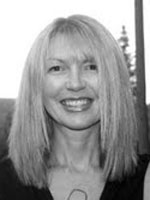
Goodbye to Paper
by Kirsten Casey
Kirsten lives at the top of Banner Lava Cap Mountain, once a volcano. Her home is minutes from Scott's Flat Lake, and less than an hour from the Yuba River in the South Yuba River watershed.

I would write paper a letter,
mix the language into scribbles
of a vernacular that made sense,
except the paper is gone.
Where did we go wrong?
Was it the indiscriminate origami,
hundreds of folded swans
fading on my windowsill?
Was it the paper footballs,
callously flicked across the desk,
in boredom? And who decided
to turn paper into work?
The endless forms, the dead horses
painted on the flaps of envelopes,
the infinite rows of trees,
milled and pressed, each with their own
rings of stories, of forest nights
and chainsaws, of snow breaks,
and bear claw climbs, of fire wind
and pine needle silence.
Paper, forgive us,
for the picnic plates and cheap
napkins, for the stench
of ink in printers, for the abusive
light of copy machines, for the soft
bound books we throw in our bags, keep
on our nightstands, drop
in our bathtubs.
I cannot believe that this is the end.
Who will I crumple now?
My tears run like blue fountain pen ink,
like words streaming down a page, in a poem
about pauses and absence,
written on what is blank and flat,
now stained with a colored needle
below a canvas of skin.
From the author’s book Ex Vivo (Hip Pocket Press, 2012)
© Kirsten Casey